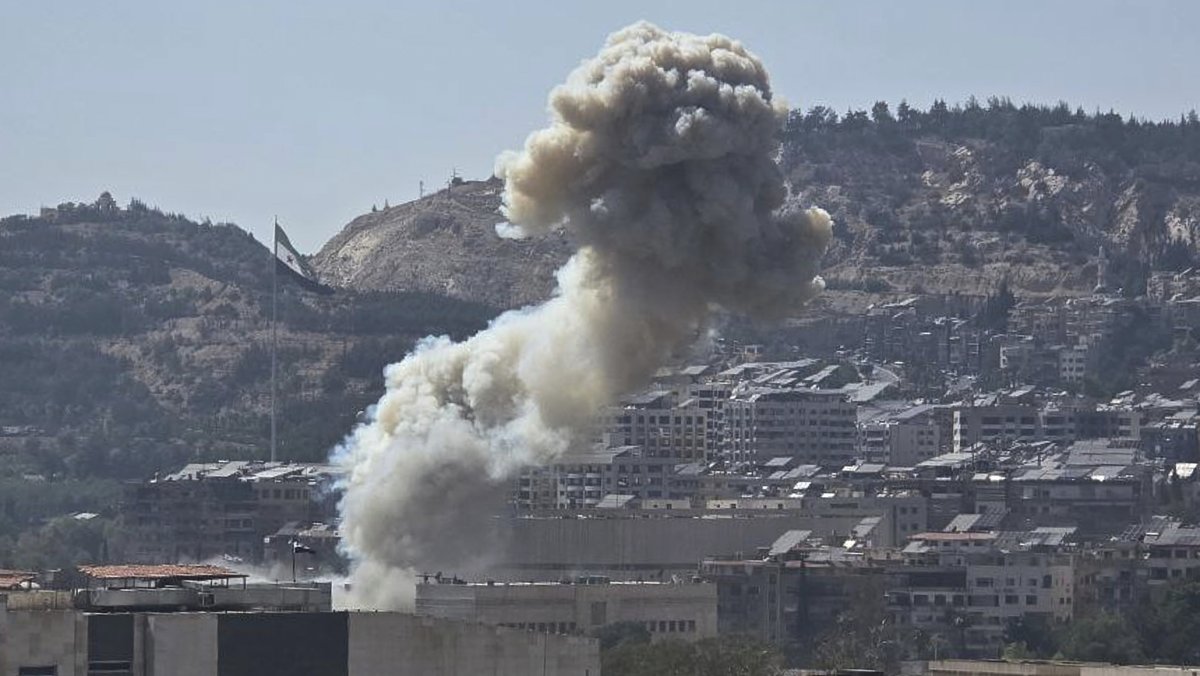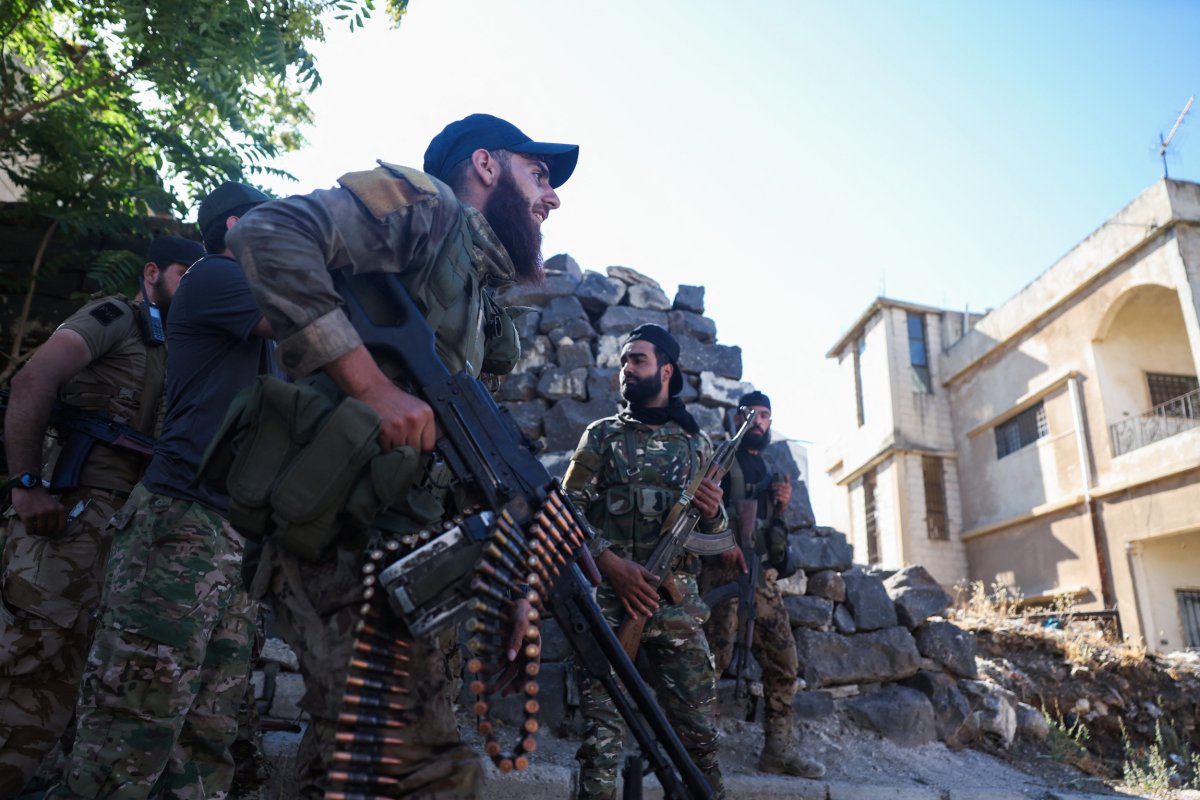-
Extreme weight loss, cosmetic surgery videos available to kids on TikTok despite guidelines, CBS News finds - 16 mins ago
-
Couple accused of attempted ‘honor killing’ targeting their daughter; Mother of 6 fatally poisoned - 18 mins ago
-
Ukraine’s ambassador to Hungary summoned to Ministry of Foreign Affairs and Trade again - 20 mins ago
-
Over 140 people on Royal Caribbean cruise sickened by stomach bug outbreak - 23 mins ago
-
At least 3 deputies killed in explosion at L.A. County sheriff’s training facility - 31 mins ago
-
Student Loan Update: How New Supreme Court Ruling May Impact Borrowers - 34 mins ago
-
Meet Lenny Krieg, a German Native Competing for the Falcons’ Kicking Job - 37 mins ago
-
Coldplay Kiss Cam joke sparks viral hoax about Astronomer CEO alleged affair - 41 mins ago
-
Couple accused of attempted ‘honor killing’ targeting their daughter; Mother of 6 fatally poisoned - about 1 hour ago
-
Full List of Biden Associates Pleading Fifth Amendment in GOP Investigation - about 1 hour ago
Israel Shifts Troops From Gaza to Syria as Another Front Intensifies
The Israel Defense Forces (IDF) are sending additional troops to southern Syria, including personnel currently operating in the Gaza Strip, amid an intensification of Israeli strikes that mark the latest escalation in a multifront war that has ravaged the region for more than 21 months.
The developments come as Israeli officials continue to accuse the Syrian Interim Government of committing human rights violations against the country’s Druze minority and threatening Israeli security. The allegations have been rejected by authorities in Damascus, where several sites, including the Syrian Arab Army’s headquarters, have been targeted by the IDF.
“We are reinforcing forces in the Golan Heights and along the border, ready for a multitude of scenarios,” an Israeli military official told reporters on background Wednesday. “We’re staying vigilant, reinforcing troops on the border, alongside the border police and our different groups.”
Some of the forces set to be deployed on this front include those “currently in Gaza,” where the IDF has been at war with the Palestinian Hamas movement since the militant group’s October 2023 attack that sparked the regional conflict.
The Israeli military official also addresses reports of hundreds of Israeli Druze crossing into Syria, confirming that “there were some incidents in which Israeli civilians have crossed the border into Syria, and we are operating to bring them back.”
Asked by Newsweek how Israeli civilians were able to penetrate the heavily guarded Israeli border from within, the Israeli military official said the matter “would be looked into.”
“Our border is very long, a large amount of civilians approaching it, and in the end of the day, our eyes and our focus is against different elements, rather than Israeli civilians,” they said.
“It’s something that we will have to study and learn how we can do better,” the Israeli military official added, “and we’re enforcing troops on the ground now to prevent this from happening either way, people infiltrating from Syria or Israeli civilians going into Syria.”
JALAA MAREY/AFP/Getty Images
A Half-Century War Reignites
Israel and Syria have remained in a state of war since their last all-out conflict fought in 1973, the last of three major conflicts between Israel and Arab coalitions since 1948, when Israel declared independence on territory also claimed by Palestinians.
The 1967 Six-Day War saw Israel assume control of Syria’s southwestern Golan Heights region, later annexed by Israel in 1980 without international recognition. The 1973 Yom Kippur War ended with a Golan Heights disengagement agreement reached between Israel and Syria, then under the rule of Syrian President Hafez al-Assad.
After his death in 2000, Assad’s son, Bashar, took power and went on to rule for nearly 25 years, almost half of them engulfed in a civil war during which he received backing from Russia and Iran.
In December, a surprise offensive led by Islamist rebels ultimately toppled the government, putting in power Syrian Interim President Ahmad al-Sharaa, a former associate of Al-Qaeda who has rejected jihadi ideologies in recent years.
While opposed to Assad, Israeli Prime Minister Benjamin Netanyahu and his government have also strongly criticized Sharaa. Upon the downfall of the old administration, Netanyahu declared the 1974 disengagement agreement null and void and launched a large-scale series of airstrikes across Syrian military sites and infrastructure, as well as a ground invasion seizing more territory beyond the Golan Heights buffer zone.

SANA via AP
Who Are the Druze?
Netanyahu and his top officials have also expanded operations in Syria under the pretext of protecting the Druze, a minority Arab Muslim sect with a sizable presence in both Israel and Syria, as well as neighboring Lebanon.
While Sharaa has vowed to pursue a more inclusive future for Syria, including all of its ethnic and religious communities, his six-month rule has been dogged by persistent reports of security forces, including former Islamist militiamen hailing from abroad, targeting minorities.
An investigation conducted by Reuters and published earlier this month found that some 1,500 members of the Alawite sect, another Arab Muslim minority group of which the Assad family is a member, had been killed during a series of massacres along the west coast regions in March.
Syrian security forces have also clashed with Druze militias operating in the southern rural Damascus city of Jaramana as well as the province of Al-Sweida, the heartland of Syrian Druze. Tensions appeared to abate briefly in May, but have since reignited in recent days.
The Syrian interim government has claimed it was deploying security forces to majority-Druze regions to restore order amid violence between Druze militias and Sunni Muslim Bedouin tribal groups. The deployment was initially welcomed by Druze spiritual leadership on Tuesday, only for religious leader Hikmat al-Hijri to then accuse the government and allied forces of waging a “complete war of extermination” against his community.

OMAR HAJ KADOUR/AFP/Getty Images
The U.S. Position
U.S. President Donald Trump’s administration has repeatedly warned Sharaa and his government against targeting minority communities, including Alawites, Druze and Kurds.
At the same time, Trump has shifted his position on Sharaa in recent months, who took power just over a month before the U.S. leader’s inauguration in January. Trump briefly met with Sharaa during a visit to Saudi Arabia in May, announcing a lifting of sanctions against Syria and later revoked the foreign terrorist organization designation of Sharaa’s former Hayat Tahrir al-Sham faction.
U.S. Secretary of State Marco Rubio addressed the latest developments in Syria during a press engagement in Bahrain on Wednesday.
“We’re going to be working on that issue,” Rubio said in response to a reporter’s question. “I just got off the phone with the relevant parties. We’re very concerned about it. And I’ll see if we have some updates later today for you.”
He added: “We’re very concerned and we want it to stop.”
Source link






























